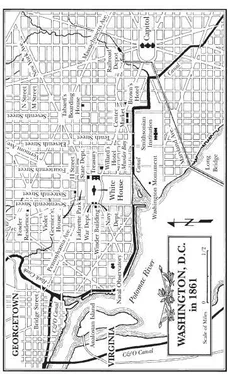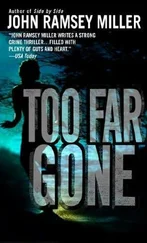John Miller - The First Assassin
Здесь есть возможность читать онлайн «John Miller - The First Assassin» весь текст электронной книги совершенно бесплатно (целиком полную версию без сокращений). В некоторых случаях можно слушать аудио, скачать через торрент в формате fb2 и присутствует краткое содержание. Жанр: Исторический детектив, на английском языке. Описание произведения, (предисловие) а так же отзывы посетителей доступны на портале библиотеки ЛибКат.
- Название:The First Assassin
- Автор:
- Жанр:
- Год:неизвестен
- ISBN:нет данных
- Рейтинг книги:3 / 5. Голосов: 1
-
Избранное:Добавить в избранное
- Отзывы:
-
Ваша оценка:
- 60
- 1
- 2
- 3
- 4
- 5
The First Assassin: краткое содержание, описание и аннотация
Предлагаем к чтению аннотацию, описание, краткое содержание или предисловие (зависит от того, что написал сам автор книги «The First Assassin»). Если вы не нашли необходимую информацию о книге — напишите в комментариях, мы постараемся отыскать её.
The First Assassin — читать онлайн бесплатно полную книгу (весь текст) целиком
Ниже представлен текст книги, разбитый по страницам. Система сохранения места последней прочитанной страницы, позволяет с удобством читать онлайн бесплатно книгу «The First Assassin», без необходимости каждый раз заново искать на чём Вы остановились. Поставьте закладку, и сможете в любой момент перейти на страницу, на которой закончили чтение.
Интервал:
Закладка:
He happened to be in Washington a few days after South Carolina seceded, when Lieutenant General Winfield Scott learned of his presence. The two men knew each other from Mexico. They discussed the national crisis and the particular threat to the District of Columbia, nestled between two slave states. They also considered the safety of the incoming president. After a time, the old general announced that he had a meeting with President Buchanan. Rook walked him down to his carriage. At the door, Scott paused.
“Our most immediate problem is that many of the citizens of the District of Columbia would like to defend the government and their next president-but they have no rallying point. There is nothing to bring them together.”
“What may be done?” asked Rook.
“Make yourself that rallying point,” Scott replied, stepping outside the door and into his carriage. From the vehicle, Rook heard him repeat his words: “Make yourself that rallying point!”
Three days later, Rook was mustered back into military service with the job of organizing the District’s security and protecting the president-elect. It felt good to be back in uniform. Unlike some military men, Rook was far from vain about his appearance. He took a small measure of pride in a neatly trimmed beard that came to a sharp point below his chin, as if it had been chiseled into shape. Overall, however, he displayed the slightly rumpled appearance of a man who felt most at home in a field camp.
For the past two months, Rook had worked tirelessly to ensure that Abraham Lincoln would survive until this day. Yet Rook did not care much for Lincoln. His candidate in the election had been Stephen Douglas, the Democratic senator from Illinois. Douglas actually had defeated Lincoln in a Senate race just two years earlier, in a contest that the whole nation had watched. Rook did not believe Lincoln was the best choice to lead the country-and he was not sure that Lincoln was even a good choice. He worried that the abolitionists behind his rapid ascent did not have the interests of the Union in mind. They were blind advocates of a radical cause, no better than the fire-eaters of the South who now committed treason. Had their positions been reversed and the South pressed its views on the North, Rook believed it was the abolitionists who would be seceding. He wished both sides would keep the nation’s interests in mind rather than flirt with a deadly conflict.
Rook had suggested holding the inauguration indoors. Lincoln, however, rejected the proposal. The open-air inauguration had become a habit ever since the British had burned the Capitol in the War of 1812 and forced the ceremony outside. The president-elect also turned down Rook’s recommendation that he stay in a private house rather than a public hotel like Willard’s. His experience in Baltimore probably explained it. Lincoln wanted to avoid another embarrassment.
From his first days in Washington, Lincoln had made clear his distaste for security. He told Scott that he did not want to be accompanied by thugs everywhere he went, like a dictator whose own people despised him. Rook had been forced to post plainclothes agents at Willard’s because Lincoln would not permit an overabundance of men in uniform. The president-elect, in fact, probably did not realize how many men Rook had sent there to guard him-there were about half a dozen at any one time, and occasionally there were more. The hotel was constantly packed with job seekers and other creatures of patronage, so Rook’s men were barely noticed. But a careful observer would have detected them there, day after day. Scott and Rook had not bothered to ask about the inaugural escort. They simply informed Lincoln of their plans and let him assume that they had been made under Buchanan’s direction, even though this was not true.
As Rook crossed Seventh Street, he looked over his shoulder. The entourage had journeyed half a mile since starting at the president’s mansion, where it had picked up Buchanan at noon, and then made a short stop at Willard’s to get Lincoln. Rook couldn’t see the White House-the Treasury Department stood in the way-but he marked his progress. Seventh Street was the midpoint, roughly. The Center Market was there, a big building full of grocers and fish-sellers. Behind it lay the seamiest part of the city, south of the Avenue. Some people called it Murder Bay. Rook thought that this might very well have been the most treacherous part of the trip, and he was glad to have it behind him.
Getting this far had taken long enough. Rook wished he could have hurried the carriage from one place to the next with more speed. Somebody once called Washington “a city of magnificent distances.” Rook did not consider the distances so magnificent. The city seemed empty and incomplete even when it was full of people, as it was today. He could only imagine what it was like during the summer, when the politicians and all the hangers-on were absent. It must seem like an abandoned village or a ghost town, he thought. In the meantime, he was concerned that the man he was supposed to protect was exposed, an easy target for someone taking advantage of Washington’s wide-open spaces.
Now he looked up the Avenue, over the heads of the marching men in front of him, and on to his destination: the Capitol. The building’s original dome was gone. A new one was rising in its place, slowly. Iron girders bent upward, looking like the ribs of a carcass. They hinted at the dome’s eventual shape, but a large crane right in the middle towered over everything and made plain that this was a work in progress. Rook wondered if it would ever really be done. West of the Capitol, the Washington Monument also lay incomplete. The main difference was that nobody had worked on it in six years. The subscription meant to fund this memorial had run out of money with the obelisk only one-third its intended height. Now it just sat there, dwarf-like and ignored. So much of the nation’s business was unfinished, thought Rook, and yet the country now tottered closer to collapse than completion.
The presidential carriage banged over a big rut, rattling Buchanan and Lincoln and causing Rook to tense at the sound. It would be nice if they finished the Capitol dome and the Washington Monument, thought Rook, but right now he’d settle for fixing the Avenue. No European capital would allow its streets to deteriorate so badly. Lincoln caught Rook’s eye and smiled as he reached up and adjusted his tall black hat.
As he looked away from the next president, Rook’s mind returned to the question he had asked himself all along the inaugural route: would he really put himself between Lincoln and a killer? So many others had decided they would not even serve under the man. Over the last two months, he had seen many of his fellow soldiers leave the army. Every day seemed to bring a new name. Most had departed for the South. Was it possible that one of them had stayed behind, plotting the ultimate treachery?
Scott and Rook had set in motion a security plan for the inauguration that would be difficult to betray: all of their subordinates knew only their own orders, not those of others. Rook felt he had guarded against some of the more outlandish rumors that had been circulating around the city, such as the suggestion that Lincoln and his cabinet would be kidnapped and smuggled to the Confederacy. He took every precaution he could imagine. Just twelve hours earlier, he had found himself racing down the Avenue in darkness to investigate a report that someone had planted explosives beneath the east portico of the Capitol, where Lincoln soon would appear. His search turned up nothing, but he posted a soldier on the spot. At daybreak, another dozen soldiers reinforced him. The colonel wanted no surprises.
As the entourage crossed Sixth Street, Rook looked at Brown’s Hotel, on his left. This was a headquarters of secessionist sympathy. Southern politicians lived here when Congress was in session. Now they were gone, having abandoned the city in droves over the last several weeks. Still, the hotel was full, just like every place of lodging in the city. When Rook looked into the crowd along the Avenue, he could not fail to notice the large number of carpetbags. Hundreds of people visiting the city simply had nowhere to stay.
Читать дальшеИнтервал:
Закладка:
Похожие книги на «The First Assassin»
Представляем Вашему вниманию похожие книги на «The First Assassin» списком для выбора. Мы отобрали схожую по названию и смыслу литературу в надежде предоставить читателям больше вариантов отыскать новые, интересные, ещё непрочитанные произведения.
Обсуждение, отзывы о книге «The First Assassin» и просто собственные мнения читателей. Оставьте ваши комментарии, напишите, что Вы думаете о произведении, его смысле или главных героях. Укажите что конкретно понравилось, а что нет, и почему Вы так считаете.












